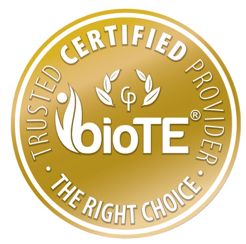Managing your stress in stressful times
One of the biggest health concerns I find is being stressed out then becoming burnt out. Stress is nearly unavoidable. If you’re lucky, you can find a reprieve in some way, maybe taking a sabbatical, a vacation, reconnecting to loved ones. Although our culture promotes stress as “normal,” (just watch the nightly news for example or one of the major news stations or try to rent or buy a house on Maui or in Seattle) the amount of stress we live in is really NOT normal.
The physiological response to any type of stress is to release cortisol, causing insulin spikes, then ultimately inflammation at a cellular level. Stressors include: busy work days & deadlines, negative feelings towards anyone, holding a cell phone to your head or near your body, sleeping late, lack of sleep, over working, feeling alone or disconnected, political and global fears about tomorrow and feeling like you’re just not doing enough or getting paid enough or loved enough or treated fairly.
I wish we could live in a time and culture where equality was 100% real and the almighty dollar wasn’t the secret passcode for power or security or freedom. But we’re not there yet. We still have work to do. I guess that’s the beauty of being human, that we get a chance to elevate, evolve, and grow into our highest potential. “Yet, when everything in the outside world tends to fall apart, the hidden unity inside life may be closer to the surface and calling for our attention. Even when everything breaks down the roots of soul know where to reconnect. When there is enough soul present we connect to the Soul of the World and become able to help both nature and culture to renew.” – Michael Meade
So, how do we manage our stress in stressful times? Here are some of my personal favorites:
- Meditate: whether breathing or guided, meditation has amazing short term and longterm benefits. Meditation literally changes the frequency of your brain waves, decreases inflammation, and changes hormones towards positive balance to name a few.
- Helpful apps: Insight Timer, Aura, Omvana, “Stop, Breathe & Think,” Calm
- 7/11 breathing technique (shared with me by a patient)
- HeartMath programs
- You can also meditate holding stones in your hands for additional benefits. Shungite stones are excellent for calibrating the body.
- Chanting
- Biofeedback
- Exercise: One of the easiest or hardest things to do sometimes. If this isn’t very easy for you to do, try stretching, yoga walking, swimming, or resistance training with a band.
- Balance blood sugar: Reducing or completely eliminating white or artificial sweeteners will reduce insulin and blood sugar imbalances, avoiding sugar highs and lows and subsequent crashes.
- If you’re having sugar cravings, try substituting something sour, for example lemon water or a grapefruit. This can change the tastebuds and may alter your food cravings.
- If you’re still having cravings, consider scheduling an appointment for further evaluation of nutrient/mineral imbalances, hormone imbalances or dysbiosis.
- Herbs & Nutriceuticals:
- Ashwagandha
- Chamomille
- Holy Basil
- Passionflower
- Kava Kava
- Valerian
- Lemon balm
- Vitamin C
- 5-HTP
- Magnesium chelate or bisglycinate forms
- Hormone balancing: Make sure to address all your hormones. This includes cortisol, insulin, thyroid, testosterone, estrogen, progesterone (for women) and vitamin D.
- Get tested: get tested regularly, especially when implementing a new program or making changes. It’s extremely important to have consistent monitoring of hormones as you begin a new regimen or change your current regimen.
- Detox your liver: the liver is the master hormone cleaner. Supporting your liver will ensure that your body can break down excess hormones and keep things in balance.
There is no right or wrong way towards managing stress. It’s about finding what works for you and creating a practice around it. Managing stress is finding your calm center everyday so that you can move from a place of equanimity and balance!





No comments yet.